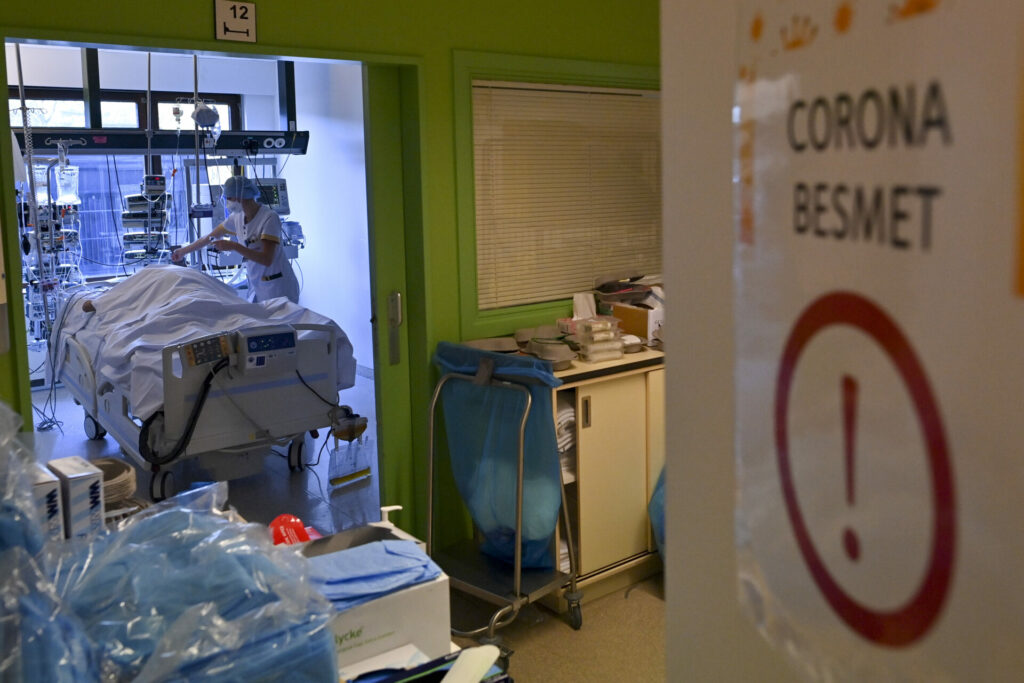In the last seven days, an average of 83.3 patients suffering from Covid-19 were admitted to hospitals each day, according to figures published by the Sciensano Institute of Public Health on Friday morning.
This marks a 42% increase from the previous seven days, and up from an average of 73 hospitalisations on Tuesday this week. This figure only includes the number of people hospitalised because of the virus.
The total number of people infected with the virus in Belgian hospitals increased from 925 on Tuesday to 1,080 (+45% since last week), while 50 patients were being treated in intensive care. This number does include patients admitted with a different condition who later tested positive.
Cases, tests and deaths
An average of 2,471 new daily infections were identified between 20 and 26 September, up by 27% from the previous week, and nearing the numbers recorded at the start of August.
Meanwhile, the average number of tests taken per day increased to around 12,200. The positivity rate remains stable at 20.9%, meaning slightly more than one in five tests has a positive result.
Omicron BA.5 remains the dominant strain, accounting for 92.4% of all infections. The strain is said to be no more infectious than the other Omicron subvariants but is effective at circumventing people’s accumulated immunity.
The number of Covid-19 patients that died each day in the same week has climbed to an average of 3.9 (+4%), while the total number of deaths in Belgium since the start of the pandemic is 32,673. This includes people who died of another cause but who were infected, meaning it may be an overestimate of Covid-19 deaths.
Reproduction rate, incidence, and total vaccinations
The reproduction rate (the average number of people that contract the virus from each infected person) has hiked up to 1.22. When it is above 1, it means that the epidemic is spreading more rapidly in Belgium. The incidence (the number of new cases per 100,000 inhabitants) has increased to 267 over the past 14 days.
Related News
- Covid-19 vaccination linked to longer menstrual cycle, new study shows
- All Brussels adults can get autumn Covid-19 booster from Saturday
As of Tuesday, almost 7.2 million people have now received a booster dose of the vaccine, representing 76% of over-18s and 62% of the entire population, while around 1.85 million people have received a second booster dose – equivalent to 16% of the total population. This group mainly consists of people aged over 65 at the moment.
Adults across all regions in Belgium can get their additional booster shots from Saturday onwards (this is already possible in Flanders). Find out why this latest jab is important.

